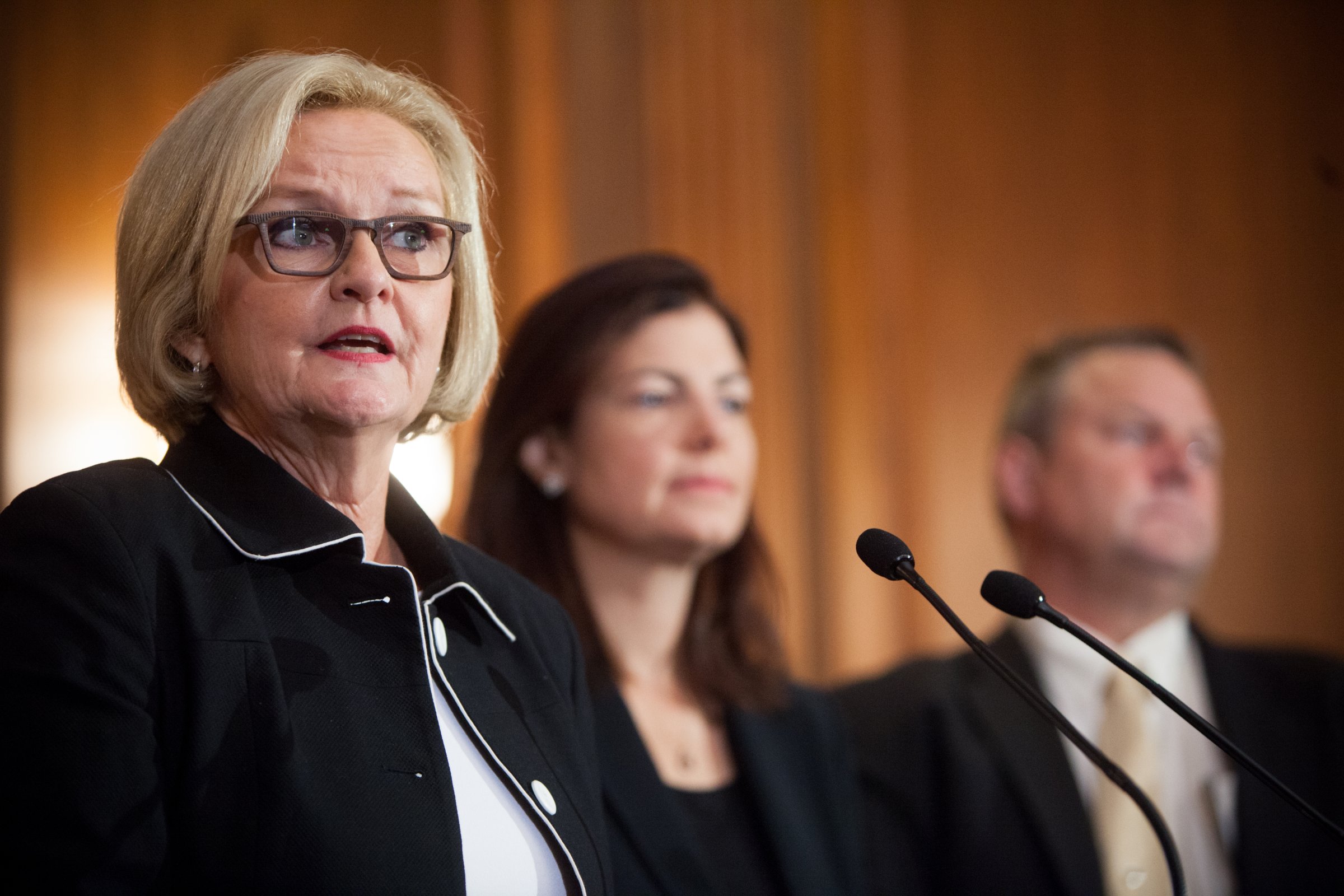
There have already been lessons learned from what’s happening in Ferguson, says Sen. Claire McCaskill, a Missouri Democrat. “I think it has certainly spurred in me, and in many others, to listen harder,” she tells TIME, “especially to young people who feel hopeless and helpless about what this country is offering them.”
After nearly two weeks, the violence in Ferguson seems to be dying down, with the National Guard standing wary watch over the troubled town. Protests first erupted after a police officer shot and killed unarmed teenager Michael Brown on August 9. Though there are conflicted reports on exactly what happened, witnesses says Brown had his hands up and was surrendering when he was shot. Brown’s death sparked outrace and protests in Ferguson, a mostly black enclave whose political and law enforcement leaders are mostly white.
McCaskill says the first order of business in Ferguson is to end the violence, which is proving difficult given the influx of troublemakers, many of whom have traveled to Missouri “for the express purpose of inciting violence, shooting police officers, throwing Molotov cocktails and looting,” McCaskill said, though Wednesday night was the calmest evening in nearly a week. “A long list of people were arrested [Tuesday night], but most of them were from other states. How do you protect the peaceful protesters from the violence among them? I’m saddened because local people want to go out and express anger, frustration, hurt and now it’s dangerous for them to do that and for no good reason.”
After that, she said, it’s a priority to get the investigation right so there can be no questions about the justice delivered. That’s why it’s important to have another autopsy and to comb over all the evidence again, so prosecutors can be sure of what happened. Often times in America’s history, she notes, when local law enforcement has failed, the federal government has stepped in. “Many civil rights came about, not when they were passed into law, but because the federal government did what it should and saw them enforced,” McCaskill said. “I think the President understands that history and our country.”
Why did Ferguson erupt in demonstrations and almost nightly violence? McCaskill says that what happened there was due to a lack of trust between law enforcement and the community. “Many countries struggle and never get to the point where people have faith that laws are executed fairly,” says the former Jackson County prosecutor. “Clearly, a large number of African-Americans don’t have faith that the laws are being executed fairly in Ferguson, and that’s a problem … We need to ensure Africans-Americans feel confident in the rule of law.
“My sense is that there’s a sensitivity in Washington that this has sparked something in this country that is much bigger than a police shooting—there’s a sensitivity from the Attorney General and the President,” McCaskill added. “I think they realized it’s a surrogate for a larger problem in the United States.”
Moving forward, McCaskill said a number of issues must be addressed so what’s happening in Ferguson doesn’t happen again. There are relatively easy solutions, like equipping cops and cop cars with cameras, she said. And then there are longer-term solutions. “The vast majority of the local government in Ferguson ran unopposed last time,” McCaskill told TIME. “We need candidate schools to recruit more young African-Americans to run for office and more diverse law enforcement communities.” Rebuilding anything, she says, whether it’s trust or a building, takes time.
More Must-Reads from TIME
- Donald Trump Is TIME's 2024 Person of the Year
- Why We Chose Trump as Person of the Year
- Is Intermittent Fasting Good or Bad for You?
- The 100 Must-Read Books of 2024
- The 20 Best Christmas TV Episodes
- Column: If Optimism Feels Ridiculous Now, Try Hope
- The Future of Climate Action Is Trade Policy
- Merle Bombardieri Is Helping People Make the Baby Decision
Contact us at letters@time.com